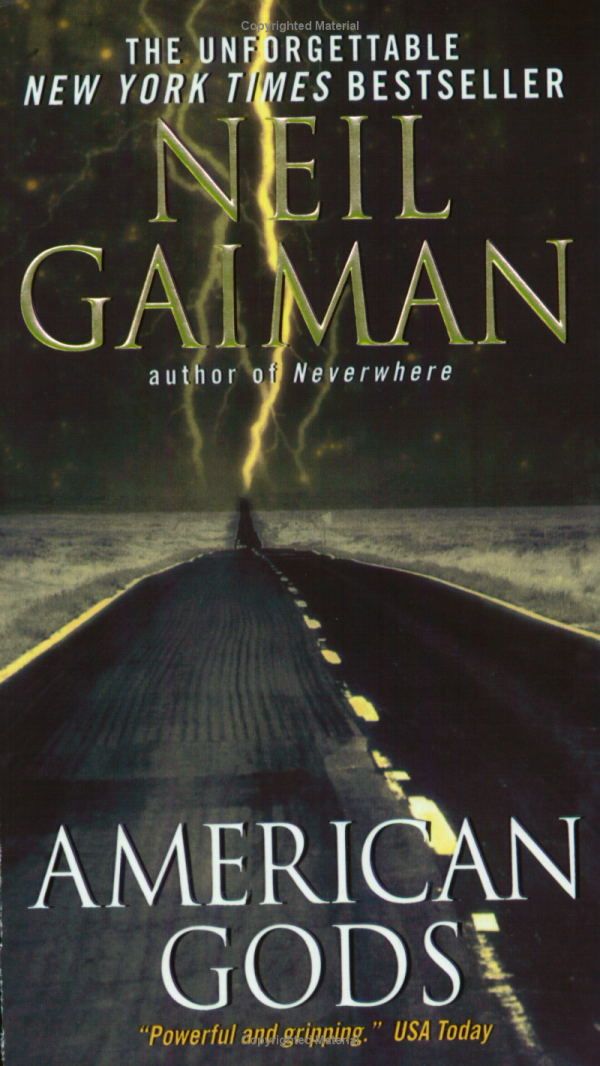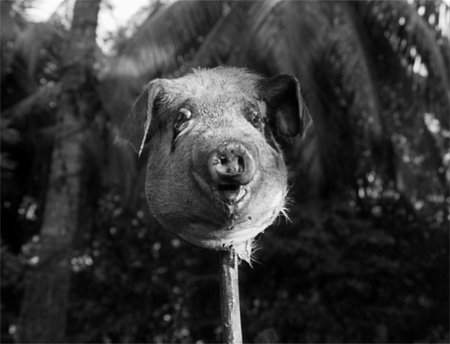Books are great, aren't they? Who doesn't love to read? Well, a lot of people I guess. Reading not only expands your vocabulary and raises your IQ (IQ is not intelligence, but your potential for intelligence), it's also fun. In today's blog, I'm going to discuss a few of my favorite books of all time, in no particular order.
1. American Gods by Neil Gaiman

Neil Gaiman is my all-time favorite modern author. He writes urban fantasy with so much depth, detail, quirkiness, and fun, and the characters are always interesting. The first book I read by him was Stardust, moving on afterward to American Gods.
I'm a fast reader, but this book took me almost six months to read. That's how I know a book is good: I tend to read slower when I'm enjoying a book more than usual, reading back over specific parts.
American Gods blends mythology and the modern day together with a dash of fantasy. The protagonist, a quiet man fresh out of prison for assault, goes by the name Shadow. As soon as he's released (a few days early), he's discovered that his wife and best friend, who were having an affair together, died in a horrible car accident. He is offered a job by a man named Mr. Wednesday, who turns out to be the Norse god Odin. Shadow discovers that gods and fantastical creatures exist merely because people believe in them, and they are brought over to the Americas by immigrants from Europe, Africa, and Asia. Throughout the book, as Shadow works for Mr. Wednesday, he comes across many characters who turn out to be mythological creatures or gods from cultures around the world. They discover that the New Gods, manifestations of modern technology such as television and the Internet, are wedging their way in and destroying the last remains of the Old Gods.
The book is peppered with vignettes of immigrants journeying to the New World, bringing their beliefs and therefore their mythology in tow. The modern depictions of gods are fitting and wonderful, such as the undertakers Mr. Ibis and Mr. Jacquel (Thoth and Anubis respectively), or Mr. Nancy (Anansi from West African and Caribbean lore).
It's a unique fantasy, and can be appreciated by those who both enjoy fantasy and hate it.
2. The Canterbury Tales by Geoffery Chaucer

I have found memories of reading this book in my AP English class in high school, where each student was to dress as a certain character and read their lines. I was the yeoman.
The book is a collection of stories told by pilgrims as they venture to Canterbury, and their stories even in this modern age are hilarious. Chaucer uses the characters to show an ironic reflection of England in his era. It's like one of those "Types of People You Meet in College" lists, but better.
The Canterbury Tales is considered to be unfinished, but it doesn't matter since each tale works well as a stand-alone. It's a great glimpse into medieval England, with a humorous side.
3. A Midsummer Night's Dream / Hamlet by William Shakespeare


I'm one of those people that love Shakespeare but despise Romeo and Juliet. It's about two teenagers who get the hots for one another and then go emo. It's also the most overrated story of his collections, when there are ones that are leagues better. If you ask someone what their favorite Shakespeare play is and they say Romeo and Juliet, you know it's just a cop-out answer and there's a chance that they think Shakespeare is a type of crepe.
A Midsummer Night's Dream is utterly ridiculous in the best way possible. It follows the story of four Athenian lovers and an acting troupe that are tricked by fairies of the forest. The fairies seriously screw up the Athenian's love life. Puck, one of the fairies, also turns one of the actor's heads into that of a donkey, and antics ensue.
This is one of those plays that you need to both read and see to get the full hilarity. Everything is just ridiculous.
The other Shakespeare play on the list is Hamlet. Not only is Hamlet far more tragic than Romeo and Juliet, it's much more badass. Seriously, everyone dies in the end. (Don't say I ruined the ending for you, you've had 400 years to read it).
Hamlet is the prince of Denmark, who is visited by the ghost of his dead father revealing that Claudius, Hamlet's uncle, murdered him to take the throne and steal the queen. Hamlet more or less goes completely off his rocker. He's partially faking his crazy, and partially actually crazy. He plots his revenge, but Claudius isn't too happy about it and sends Hamlet off to England with Rosencrantz and Guildenstern. Hamlet diverts Claudius's trick and comes back to Denmark to kill him.
It's the Lion King, except by the end Simba, Nala, Sarabi, Scar, all the hyenas, Timon, and Pumbaa are dead along with Mufasa. Pretty harrowing.
4. Fahrenheit 451 by Ray Bradbury

In the future, reading is outlawed and firemen don't fight fires, but start them. On books. The main character, Montag, is a fireman who meets a new neighbor that shares her openminded ideas. This causes Montag to rethink his own life and his job. He starts to hide books away, curious as to why anyone would want such a thing, but is discovered and goes into hiding. The government destroys itself in trying to kill Montag, and society is left in a pile of ash to start anew again.
This is another book I did for my wonderful AP English class, whereas I made puppets and acted the book out. If you're curious about the title, 451 degrees Fahrenheit is when paper catches fire.
5. Lord of the Flies by William Golding

A group of British schoolboys crash-land on an unhabited island. Everthing seems pretty spiffy at first... there's fresh water, lots of food, and no adults. Slowly, they descend in child savages, some demanding that they should work together for the greater good while others look out for the welfare of themselves. When some of the boys murder another child, Piggy, the main character Ralph escapes into the wilderness alone and manages to be saved by a passing ship.
This book explores the human instinct of survival, whereas civilization will give way to savagery in an attempt to live before all others. It also holds a morbidly romantic sentiment to me (Sean and I met in Political Science 101 the day the professor played this movie).
6. Turn of the Screw by Henry James

Turn of the Screw is a ghost story first and an underlying piece of sexual oppression and dealing with the conservative Victorian era second. The main character is a governess sent to work on an estate owned by a wealthy man burdened by his niece and nephew he is forced to care for. Since he has no interest in raising them, he leaves the governess alone on the estate with the children. It takes a turn for the bad when the boy, Miles is sent home from his boarding school with an expulsion notice, and the children start acting strange.
This is a great novella that has endless interpretations, and is a great read for those who enjoy multiple layers to their books.
7. Frankenstein by Mary Shelley

This book was a big deal because a woman of all things wrote it in the early 1800s, a time when women were best for popping out babies and cooking dinner. Everyone knows the story of Frankenstein, so I won't waste breath here, but there are some common misconceptions you should know:
-Frankenstein is not the monster. It's the doctor who created him, Dr. Victor Frakenstein. Some argue that the monster could be called Frakenstein since it's more or less the doctor's "child," but that just sounds like backpeddling to me.
-Frakenstein's monster isn't evil, but confused, outcasted, and angry at his existence. He takes revenge on Frakenstein by killing those important to him, so Frakenstein would feel the misery that the monster feels.
-Frakenstein and his monster are emo. The monster wears his hair over one eye and has enough My Chemical Romance shirts to clothe China.
Well, there's a handful of my favorite books. Tell me some of yours!

No comments:
Post a Comment